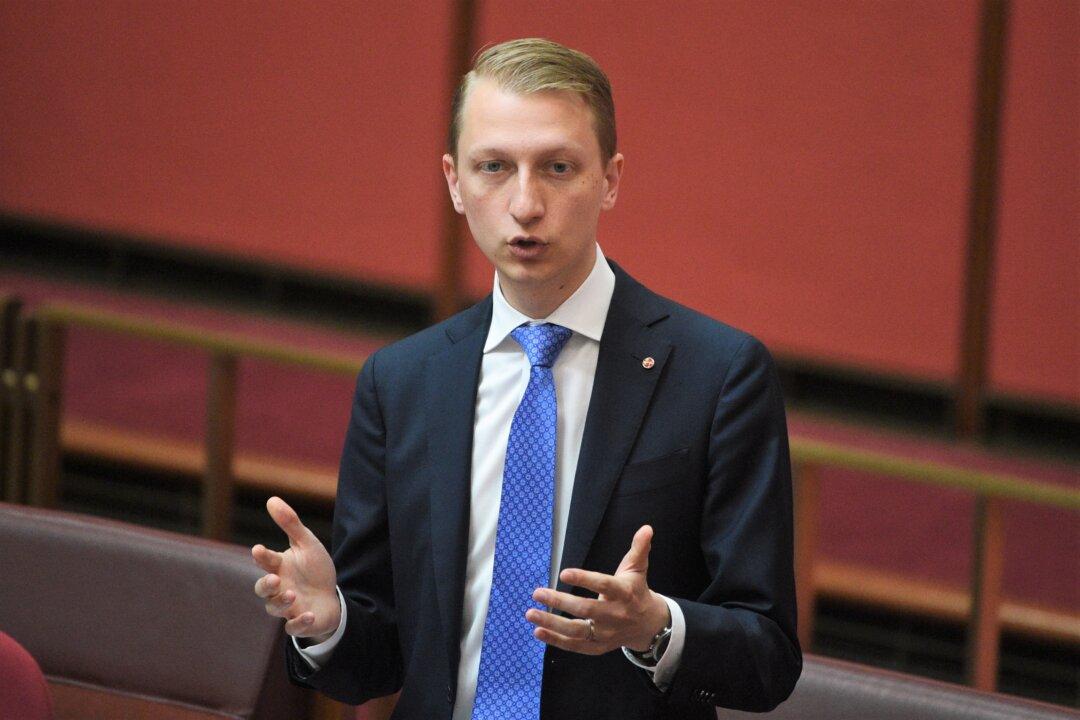Hot on the heels of federal government claims that the Chinese Communist Party (CCP) would be “very happy” to see the Australian Labor Party (ALP) win the next election, the chair of the bipartisan Joint Committee on Intelligence and Security, Liberal Senator James Patterson, has launched another volley at the ALP, this time targeting Deputy Leader Richard Marles.
On Feb. 14, Patterson posted in a thread on Twitter questioning why Marles’ team removed from his website a September 2019 speech to the Foreign Studies University in Beijing, where the deputy leader said defining the CCP as an enemy would be a “profound mistake.”





